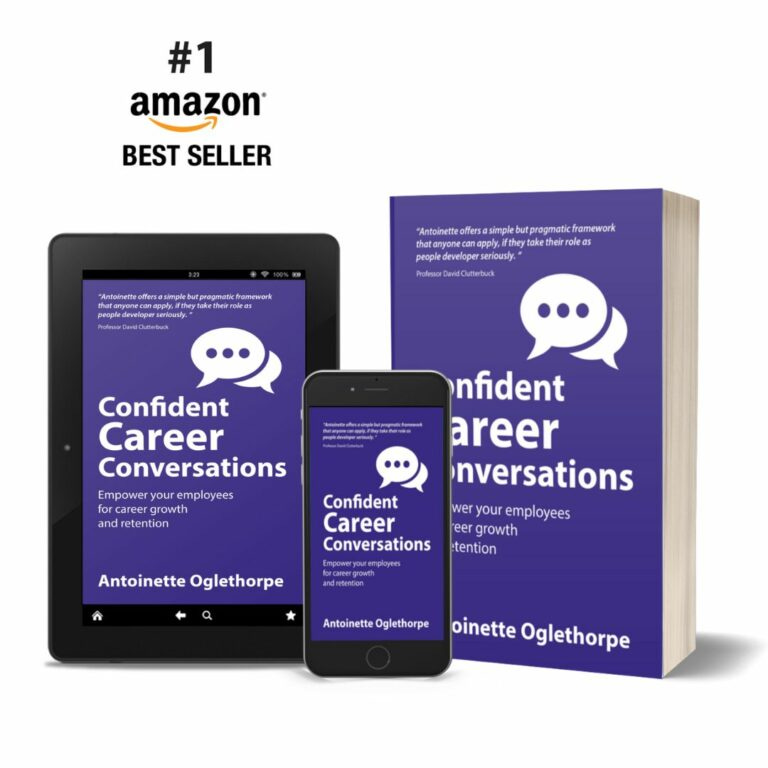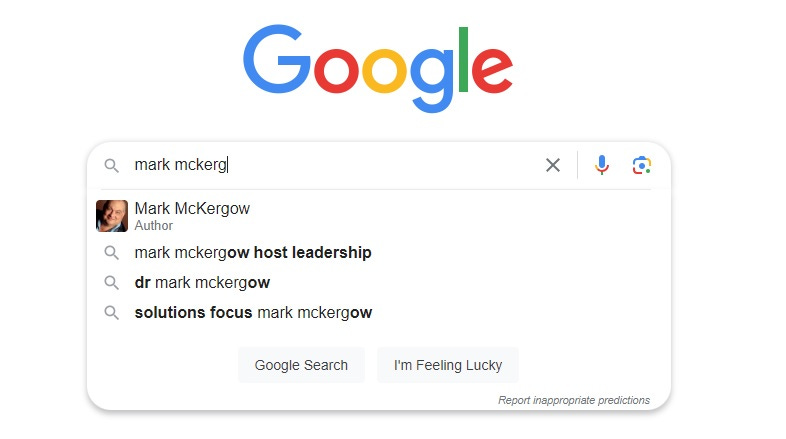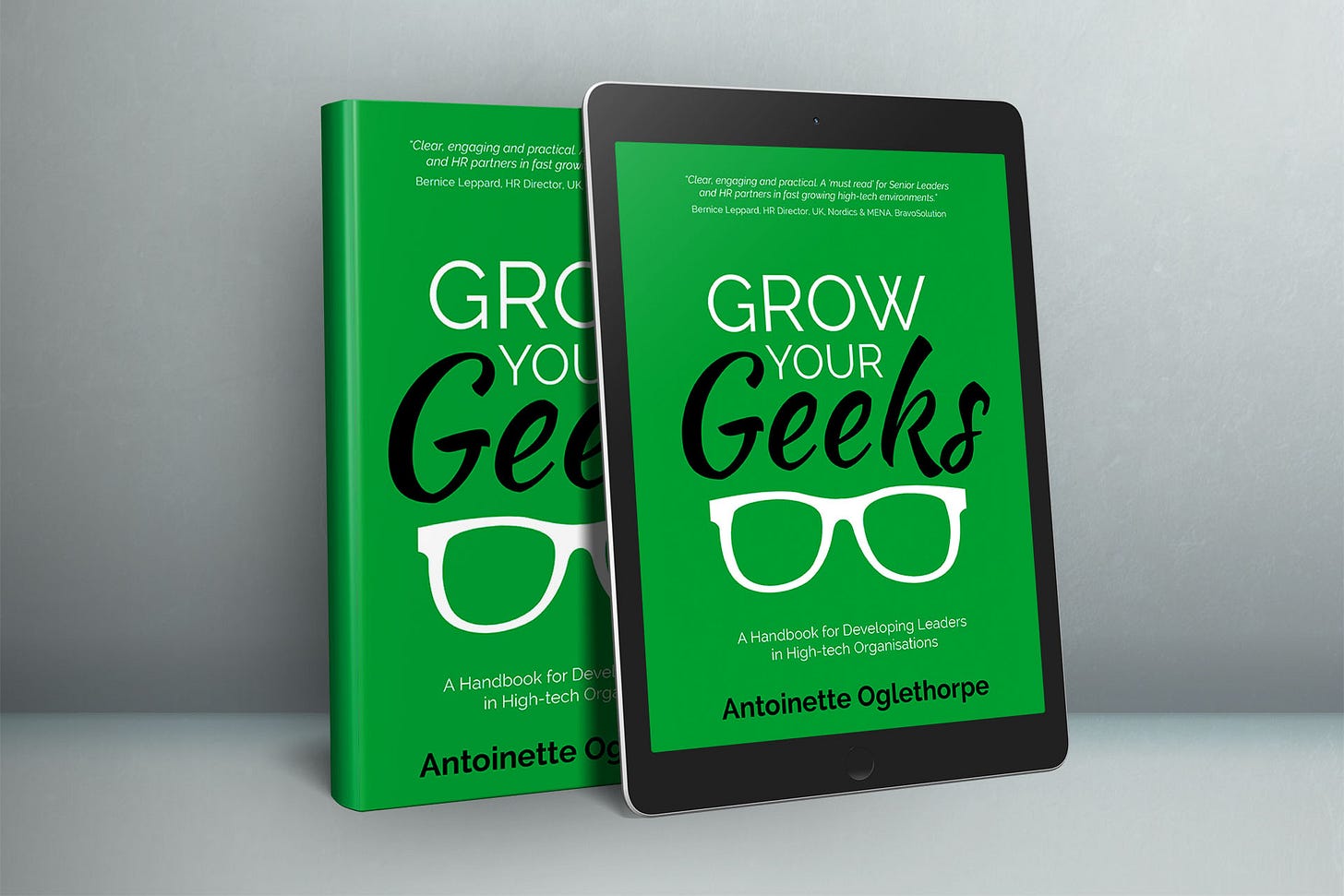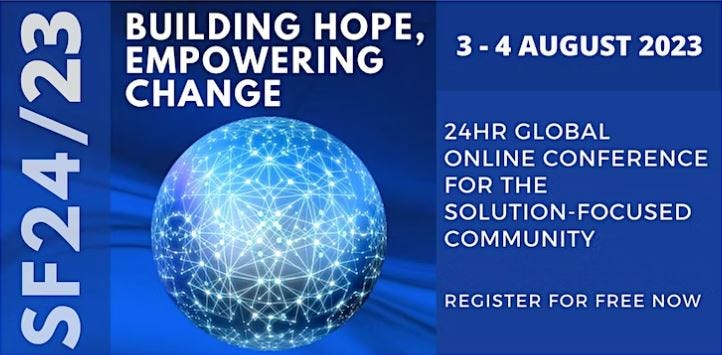24. Careering conversations: Building confidence AND not entirely in control?
Career development has changed in the past couple of decades. A key new book from Antoinette Oglethorpe shows how to handle the new world of work – in a Solution Focused way.
The world of career conversations has come on a long way since I started work in the mid-1980s. Then, many organisations and industries had a defined career structure which one could advance along, a bit like climbing a ladder. I started in the electricity industry as a Third Engineer, from where the path went Second Engineer, First Engineer and (if you were lucky) Senior Engineer. Many people expected to stay in the same industry for a lifetime, so these progressions and promotions were key moments. Talk of ‘career conversations’ was limited to those unfortunate enough to be facing redundancy.
These kinds of ladder have been superseded in many places with a much more fluid concept of jobs, levels and (lack of) structure. There are exceptions (medicine and the law are prime examples of surviving ladders) but for many of us ‘career advancement’ is much more a case of seeking new opportunities and building contacts who may be able to help. How to think about, and act in, career conversations is the subject of a new book, Confident Career Conversations by Antoinette Oglethorpe which is a super guide to this key topic in the new world of work. Antoinette was part of our team at SFWork for a number of years and has since built herself and her organisation into quite a force in the worlds of mentoring, leadership and careers.
What is a ‘career’?
The word career comes originally from ‘carrus’, the Latin for chariot (from which also comes car). This image of something moving forward, with origins in jousting tournaments when men galloped towards each other at full speed, came to mean ‘the course of one’s professional or public life’ from the seventeenth century onwards. As the Cambridge Dictionary puts it:
Career (n.) the job or series of jobs that you do during your working life, especially if you continue to get better jobs and earn more money
That’s career as a noun. It’s also a verb. The verb meaning is not usually explicitly related to the ‘job’ career but I think it’s also rather relevant. Here is the Cambridge Dictionary’s version:
Career (v.) (especially of a vehicle) to move fast and in a way that is out of control
When we’re talking about careers at work, we usually mean the first. But I think the second meaning is also very relevant. Career paths are never totally within our control. Even in the traditional ladder-type career a lot can hinge on a gap opening up at the next level, someone deciding to move to another part of the country, even a senior person retiring or dying. And then there would be the inevitable interviews, personal circumstances (family commitments, ties to certain places, travel difficulties and many more). There is always an element of luck in finding a good new job; even the best prepared can find themselves frustrated when others’ plans change, re-organisations happen, top people move on, the company is taken over by Elon Musk, etc.
Facing up to this randomness and luck factor is a very good reason not to fear career conversations but to look forward to them. What is more, the modern world of work has changed in ways which make such conversations even more important.
The modern world of work
Antoinette concisely sets out the background to what has changed in the world of work over the past decade or two:
1. Technology: Exponential advances in technology are changing the world around us every day. Artificial intelligence, big data, robotics and automation aim to reduce labour and help with complex tasks. These same innovations bring uncertainty and worry for those whose lives and jobs may be affected by these changes. Estimates show 45% of the jobs people perform today could be automated using future technological reforms.With these losses come opportunities, at least for those flexible enough to adapt. We’ve seen through successive human revolutions – agricultural, industrial, digital – how new technology inevitably brings in new jobs.
2. Changing demographics: The makeup of the global population is changing, with significant and direct impacts on the demographics of the workforce. People are living and keeping fit for longer and outliving the estimations of pension schemes, meaning many must stay in work for longer. As a result, many workplaces have four (or even five) generations working side by side. An increasingly diverse and inclusive workforce needs more alternative ways of working.
3. The global pandemic: In only a few months, the pandemic rapidly changed the way lots of people work. COVID-19 accelerated a lot of significant changes that were already happening in the economy in relation to virtual and remote working.
4. Globalisation: The fast pace of globalisation is also changing the face of the workforce through greater cross-border collaboration, virtual team-working and distributed workforces. Organisations can gain competitive advantages from their ability to source talent from a wide talent pool, leading to increased engagement, innovation and productivity.
5. Business shift: There is a driving shift from large corporations to a more entrepreneur-driven society. The rise of the gig economy has made it easier for people to take their work lives into their own hands, giving them the freedom to work when and where they want. (From Antoinette Oglethorpe, Confident Career Conversations, ReThink Press, 2023, pp 19—21)
One key result of all these changes is that there is a lot more flexibility and mobility. While an organisation’s view of career management might have simply been ‘who can fill these slots’, the wishes, hopes and desire of the individuals has become much more important. Finding a good fit between the worker, the team and the organisation is key; a good fit means all benefit, a poor fit can be distressing for the individual, inconvenient for the team and unprofitable for the wider organisation. There’s a lot to play for.
Use a growth mindset
I really liked Antoinette’s list of ways to embrace a growth mindset (based on the work of Carol Dweck, where change is happening all the time and people can and do expand their abilities). These include:
Think lattice, not ladder
Focus on progression, not perfection
Remember, ‘not yet’ doesn’t mean ‘not ever’
Value the journey, not just the destination
See feedback as a gift
Share your experience with others
This is a very good high-level list of how to tackle complex change in any area, not just careers. Things are connected in all kinds of ways, and a focus on progress is key; striving for perfection (as opposed to imagining it and using the ideas) can be a very good way to get bogged down. There are times when things align and times when they don’t – awareness of the bigger picture can be a great help. I remember coming across the idea that the ‘journey’ was important in the early 1990s. Most of our lives are spend on journeys rather than arrivals, which can prove momentarily satisfying, exhilarating or disappointing (and even all three). It was a transformational moment, and led to my own top career development question:
Who do you want to hang out with all day every day?
I had entertained ideas about being a musician for some time. Then I realised that a lot of the musicians I worked with were not really that inspiring as company; they tended to be disorganised, late, a bit moany, unreliable. Maybe that’s the way to be a creative artist, but it wasn’t for me. I decided to go into management and leadership development where the people were mostly well-organised, on time, optimistic and reliable. A much better place for me to do my best – and I could still do a little music on the side from time to time. (The other way around – be a musician with a bit of management on the side – would be much more difficult to pull off!)
Career conversations with a Solutions Focus
The heart of the book is Antoinette’s Career Conversation Tool Kit, ten topics to talk about which fold around and loop back on each other. I won’t go into it all here (get the book to find out), but I will note the general scheme:
Start at the present (briefly)
Learn from the past
Dream of the future
Back to the present again
I was in Vienna last week at SOLWorld 2023 where I gave a workshop with Susanne Burgstaller and Chris Iveson on using the Solution Focused Art Gallery with organisations. This way of structuring a conversation gives the practitioner a key choice: having established the topic of the conversation (the Platform), whether to look at the future or the past first. Many SF practitioners habitually start with the future, which can be a good choice if the customer seems to be heading for something new.
Antoinette very positively chooses the other route here, which I think makes perfect sense. There is lots to be learned from previous experiences, not just in terms of what people can do but also what they enjoy, their strengths, what gets them going, and how they like to contribute, which can all then be folded into a look to the future. I love that Antoinette describes this future conversation as a ‘dream’ (a term also used in Appreciative Inquiry). It’s a leap into a possible future, not a goal to be aimed for at all costs, informing the conversation here and now and the next steps to take.
Key thoughts about careers
In the end we never quite know what our career has in store for us – that’s the ‘out of control’ part I flagged up earlier. Some of my friends took the traditional option of working their way up a ladder and have mostly been amply rewarded for it. One did that very successfully and has now trained as a priest in Rome to start another career – I admire him greatly (even if I don’t subscribe to his religious beliefs).
I decided at the age of 30 to take a more varied path and get involved in many things. I have been a nuclear physicist, a management developer, a learning design consultant, a solutions focused coach and organisational consultant, a leadership development pioneer with host leadership, an occasional musician, and more recently a proponent of micro-local community building. I have written six books and dozens of articles and blogs, not to mention these Substacks (24 so far), plus 137 jazz reviews for London Jazz News. Perhaps it should come as not much surprise that Google has decided that I’m an author!
The 18-year-old me would be very surprised indeed about this. I hated writing – all this whiffle and piffle, when subjects like maths had clear answers which were 100% correct. Now I know that most of life is not like maths, can’t be reduced to equations and it’s is all in the detail. Every time I sit down to write I can start again – what a liberation!
Conclusions
Organising both humanely and effectively needs organisations and people to handle career conversations well. This is not easy – remember that a career is a path of progress AND you’re never (totally) in control. Antoinette’s book offers a very useful way to grapple with the topic at work for you and those around you. I recommend it very highly.
As usual please like, share and comment!
Dates and mates
Antoinette Oglethorpe also runs workshops on Confident Career Conversations and wrote Grow Your Geeks, a guide to developing leaders in high-tech organisations. Check out all her activities at https://www.antoinetteoglethorpe.com/
SF24, the global 24-hour online Solution Focus event with presenters, workshops and conversations around the world is scheduled for 3-4 August 2023. It’s a superb chance to meet up with SF people from all over the world. I understand that there are discussions about whether this is the best date, but whenever it happens it’ll be unmissable. Register free at
https://www.solutionfocus24.com/
And a reminder that Steps To A Humanity Of Organisation is taking a break in July and August. I have a big writing project in July (more later) and will be needing a rest in August (and it’s also the Edinburgh Festival and Fringe). This Substack will return on Wednesday 6th September 2023.









